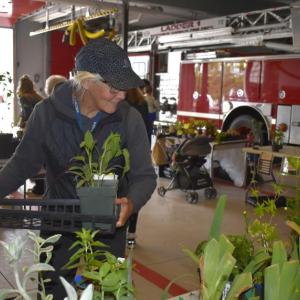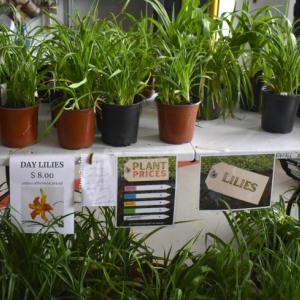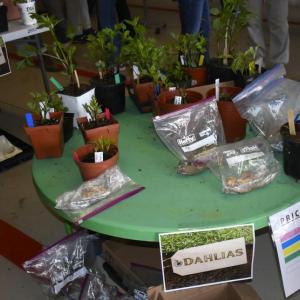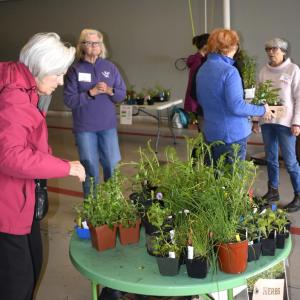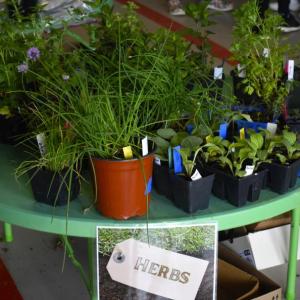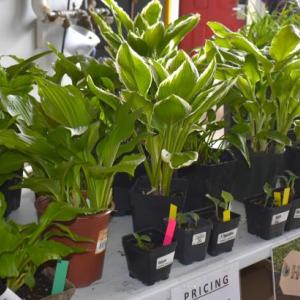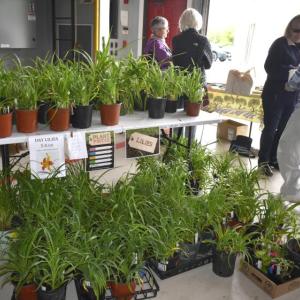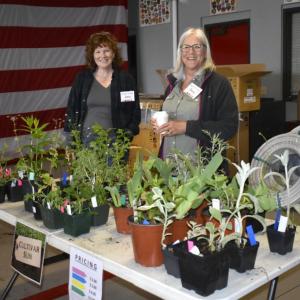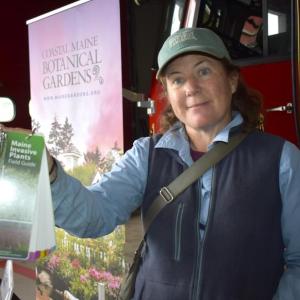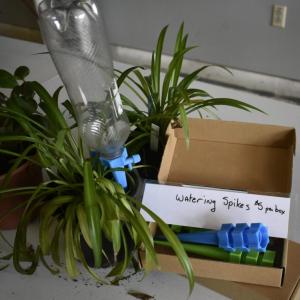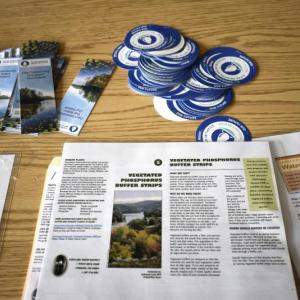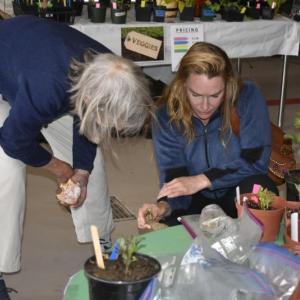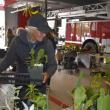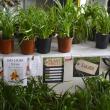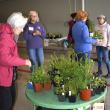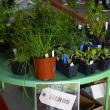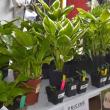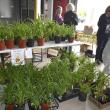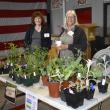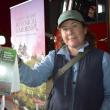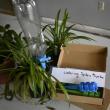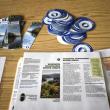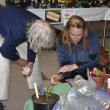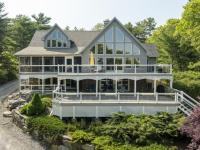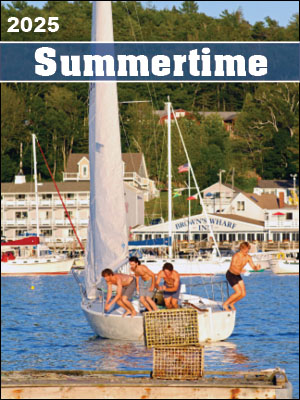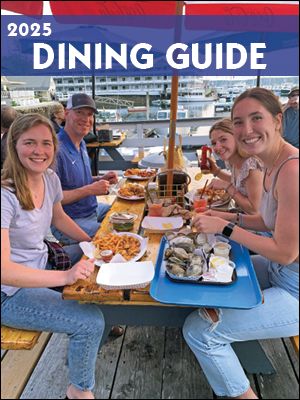BHML plant sale celebrates ‘going native!’
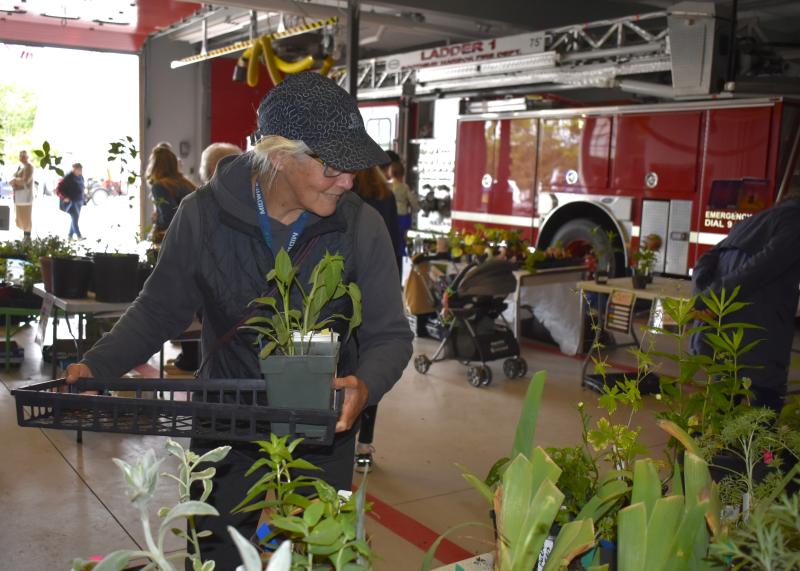 Nell Tharpe hunts for additions to her East Boothbay gardens at the BHML Plant Sale June 3. LISA KRISTOFF/Boothbay Register
Nell Tharpe hunts for additions to her East Boothbay gardens at the BHML Plant Sale June 3. LISA KRISTOFF/Boothbay Register
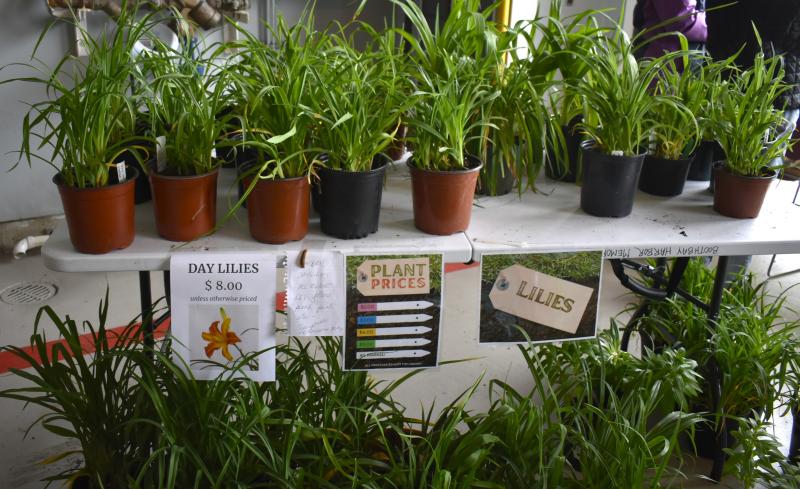 Lily pricing was outstanding. LISA KRISTOFF/Boothbay Register
Lily pricing was outstanding. LISA KRISTOFF/Boothbay Register
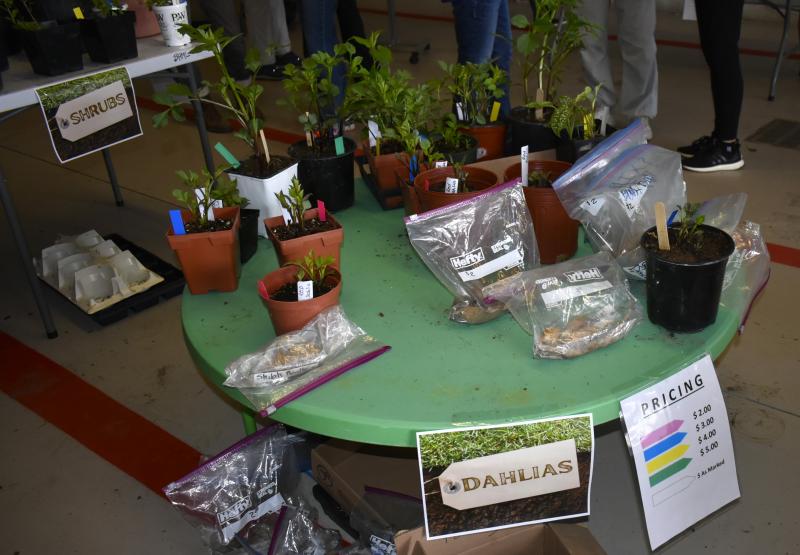 Dahlias and shrubs were super sellers. This is one of the tables at 10:30. The sale began at 9. LISA KRISTOFF/Boothbay Register
Dahlias and shrubs were super sellers. This is one of the tables at 10:30. The sale began at 9. LISA KRISTOFF/Boothbay Register
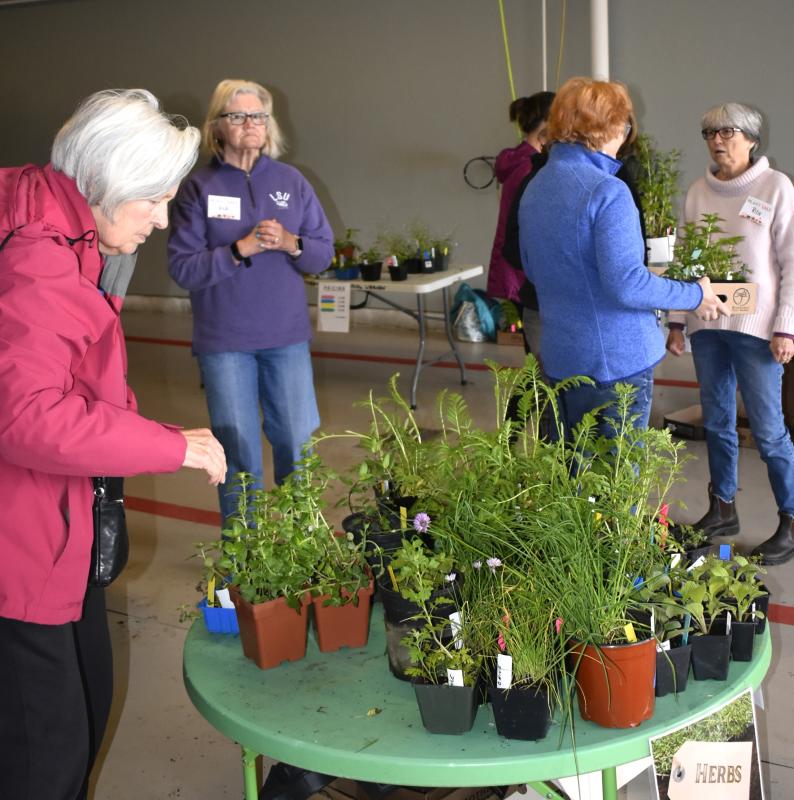 LISA KRISTOFF/Boothbay Register
LISA KRISTOFF/Boothbay Register
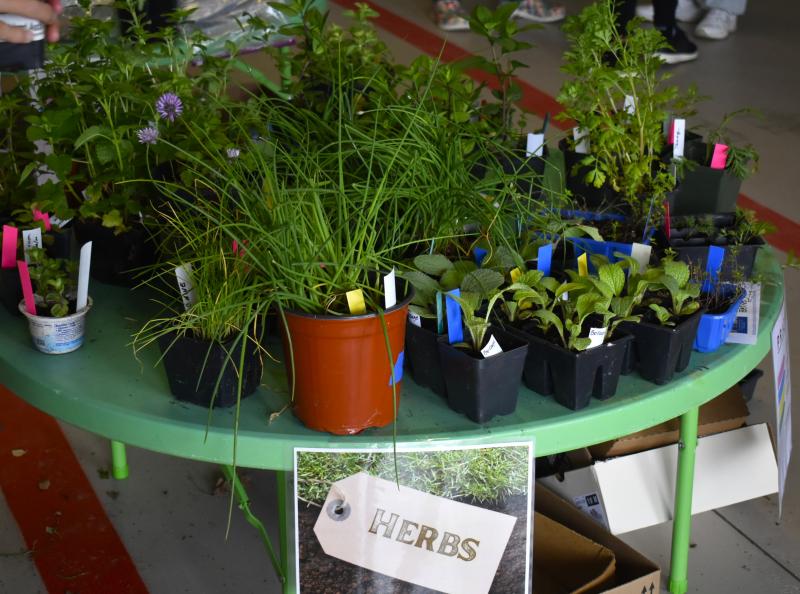 Herbs – motherwort, lavender, sweet woodruff, Maine mugwort and more. LISA KRISTOFF/Boothbay Register
Herbs – motherwort, lavender, sweet woodruff, Maine mugwort and more. LISA KRISTOFF/Boothbay Register
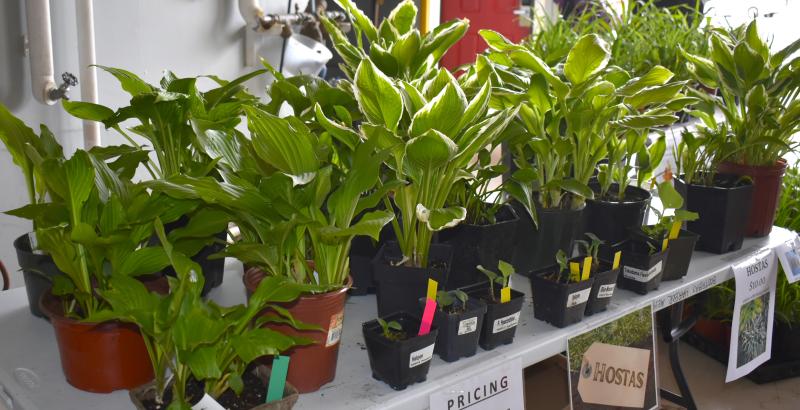 Hosta was gorgeous and popular among the gardeners at the sale, and deer love them, too. LISA KRISTOFF/Boothbay Register
Hosta was gorgeous and popular among the gardeners at the sale, and deer love them, too. LISA KRISTOFF/Boothbay Register
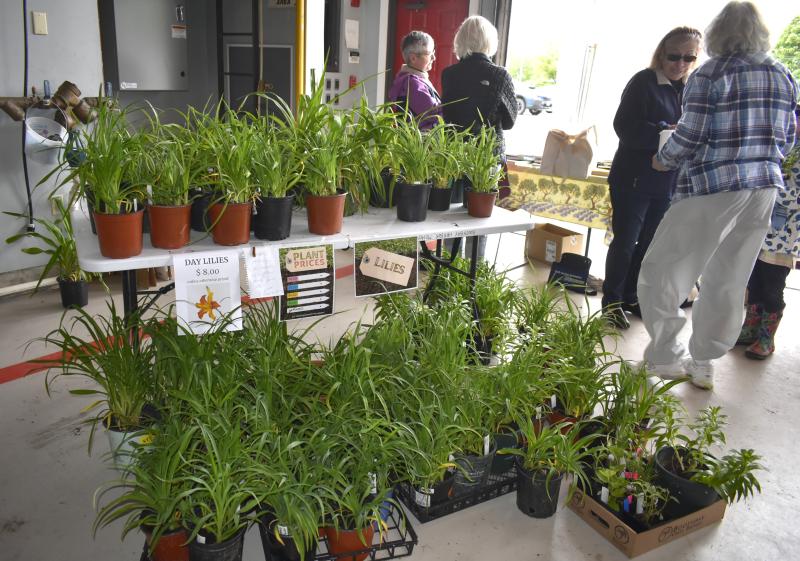 Lilies, anyone? LISA KRISTOFF/Boothbay Register
Lilies, anyone? LISA KRISTOFF/Boothbay Register
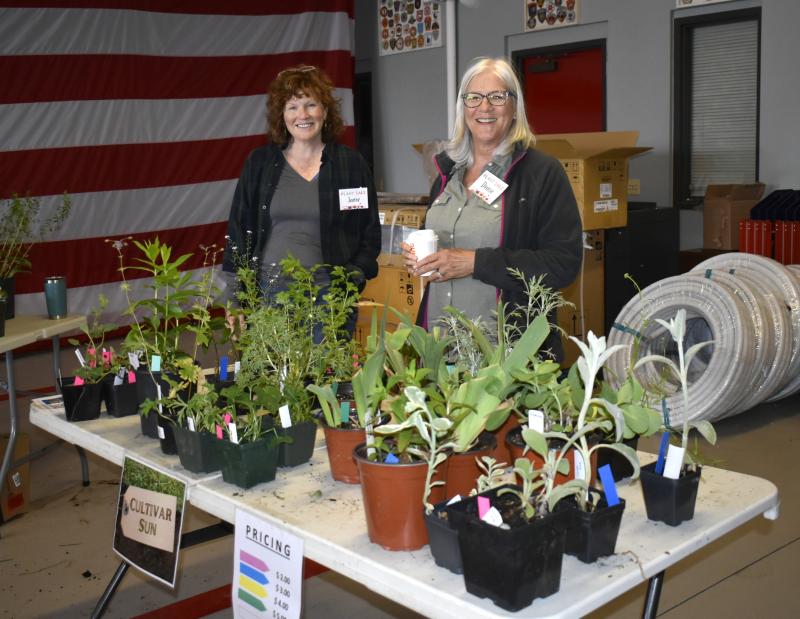 Cultivar plant table with Denise Friant, right, and Jamie Morin. Both women donated plants for the sale. LISA KRISTOFF/Boothbay Register
Cultivar plant table with Denise Friant, right, and Jamie Morin. Both women donated plants for the sale. LISA KRISTOFF/Boothbay Register
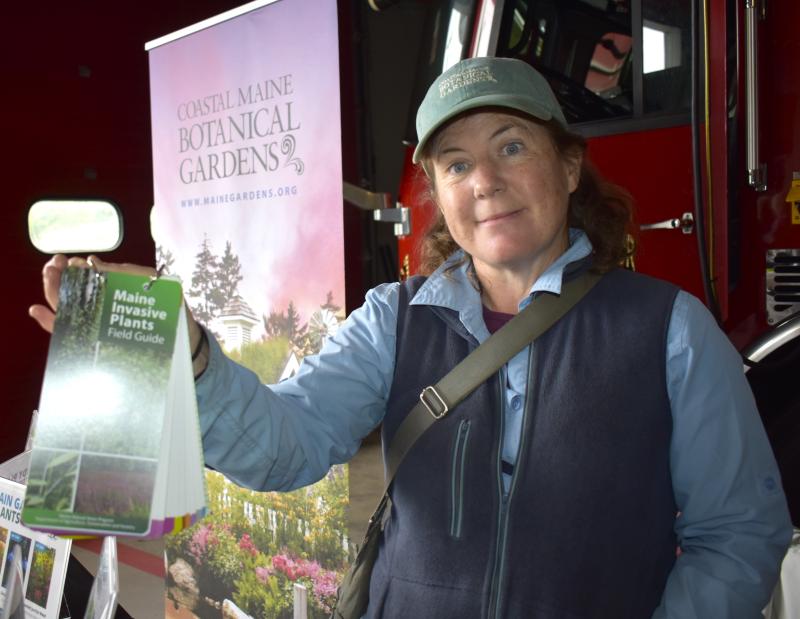 Irene Barber, CMBG’s adult education and horticultural therapy program manager, with an informational pamphlet. LISA KRISTOFF/Boothbay Register
Irene Barber, CMBG’s adult education and horticultural therapy program manager, with an informational pamphlet. LISA KRISTOFF/Boothbay Register
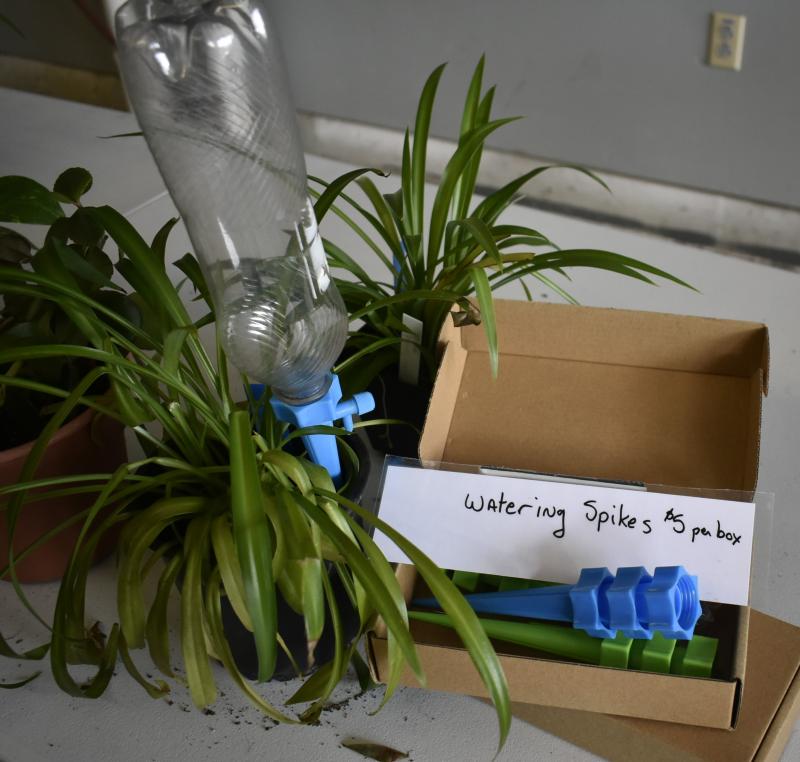 Watering spikes were among the items available to keep plants healthy. LISA KRISTOFF/Boothbay Register
Watering spikes were among the items available to keep plants healthy. LISA KRISTOFF/Boothbay Register
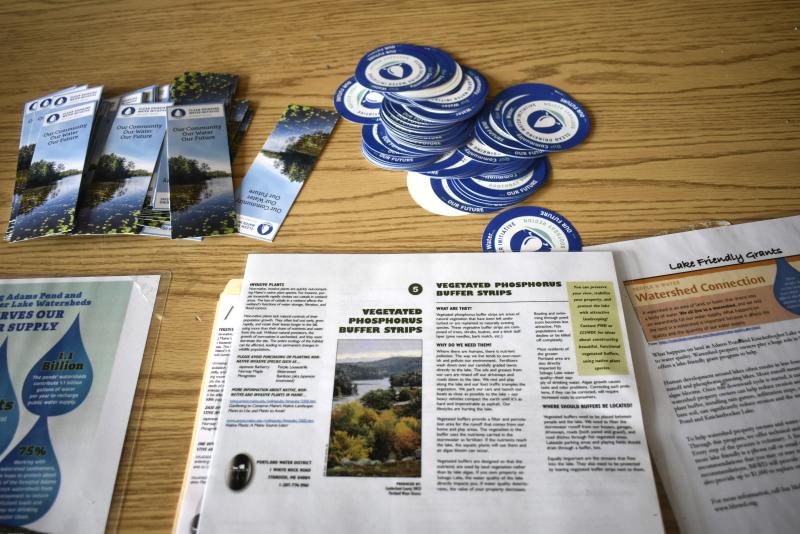 Boothbay Region Clean Drinking Water Initiative information table. LISA KRISTOFF/Boothbay Register
Boothbay Region Clean Drinking Water Initiative information table. LISA KRISTOFF/Boothbay Register
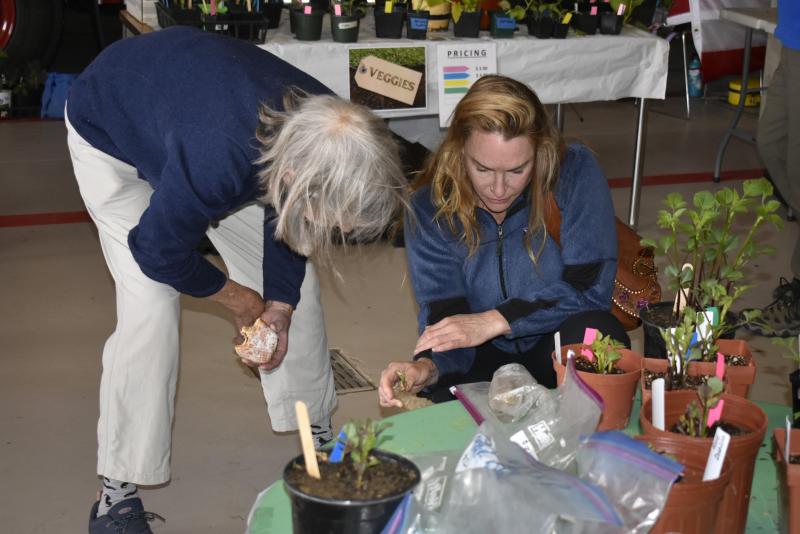 Denise Friant engages in some impromptu detective work at the sale. LISA KRISTOFF/Boothbay Register
Denise Friant engages in some impromptu detective work at the sale. LISA KRISTOFF/Boothbay Register
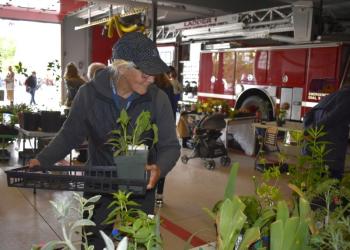 Nell Tharpe hunts for additions to her East Boothbay gardens at the BHML Plant Sale June 3. LISA KRISTOFF/Boothbay Register
Nell Tharpe hunts for additions to her East Boothbay gardens at the BHML Plant Sale June 3. LISA KRISTOFF/Boothbay Register
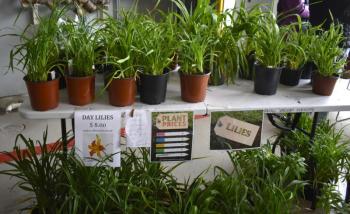 Lily pricing was outstanding. LISA KRISTOFF/Boothbay Register
Lily pricing was outstanding. LISA KRISTOFF/Boothbay Register
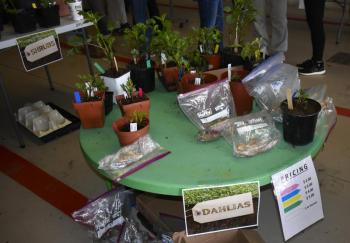 Dahlias and shrubs were super sellers. This is one of the tables at 10:30. The sale began at 9. LISA KRISTOFF/Boothbay Register
Dahlias and shrubs were super sellers. This is one of the tables at 10:30. The sale began at 9. LISA KRISTOFF/Boothbay Register
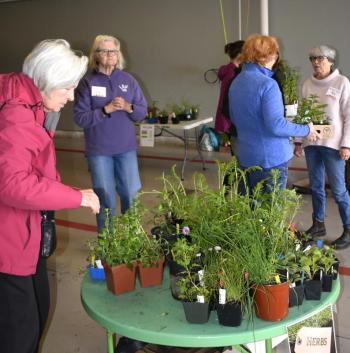 LISA KRISTOFF/Boothbay Register
LISA KRISTOFF/Boothbay Register
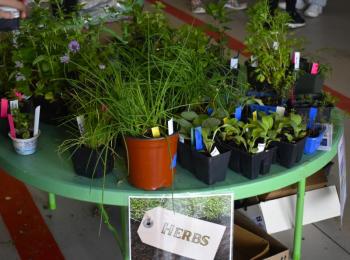 Herbs – motherwort, lavender, sweet woodruff, Maine mugwort and more. LISA KRISTOFF/Boothbay Register
Herbs – motherwort, lavender, sweet woodruff, Maine mugwort and more. LISA KRISTOFF/Boothbay Register
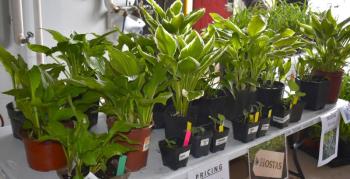 Hosta was gorgeous and popular among the gardeners at the sale, and deer love them, too. LISA KRISTOFF/Boothbay Register
Hosta was gorgeous and popular among the gardeners at the sale, and deer love them, too. LISA KRISTOFF/Boothbay Register
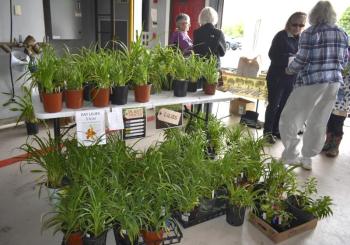 Lilies, anyone? LISA KRISTOFF/Boothbay Register
Lilies, anyone? LISA KRISTOFF/Boothbay Register
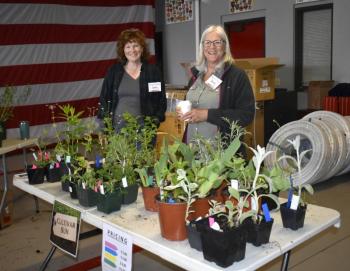 Cultivar plant table with Denise Friant, right, and Jamie Morin. Both women donated plants for the sale. LISA KRISTOFF/Boothbay Register
Cultivar plant table with Denise Friant, right, and Jamie Morin. Both women donated plants for the sale. LISA KRISTOFF/Boothbay Register
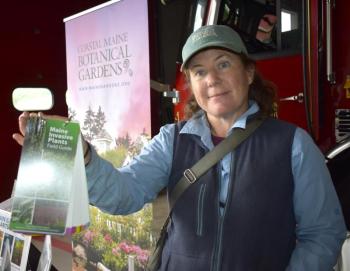 Irene Barber, CMBG’s adult education and horticultural therapy program manager, with an informational pamphlet. LISA KRISTOFF/Boothbay Register
Irene Barber, CMBG’s adult education and horticultural therapy program manager, with an informational pamphlet. LISA KRISTOFF/Boothbay Register
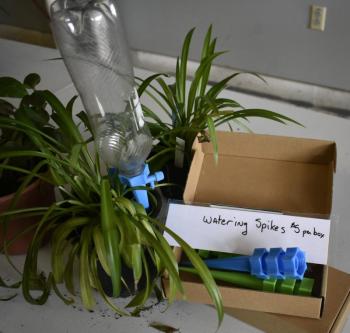 Watering spikes were among the items available to keep plants healthy. LISA KRISTOFF/Boothbay Register
Watering spikes were among the items available to keep plants healthy. LISA KRISTOFF/Boothbay Register
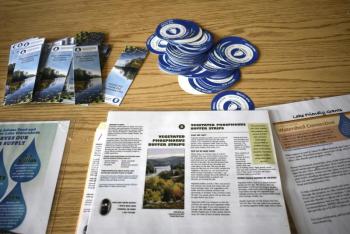 Boothbay Region Clean Drinking Water Initiative information table. LISA KRISTOFF/Boothbay Register
Boothbay Region Clean Drinking Water Initiative information table. LISA KRISTOFF/Boothbay Register
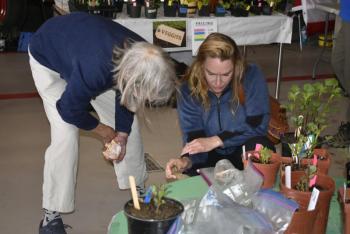 Denise Friant engages in some impromptu detective work at the sale. LISA KRISTOFF/Boothbay Register
Denise Friant engages in some impromptu detective work at the sale. LISA KRISTOFF/Boothbay Register
The cold temperatures and rain forecast for Saturday, June 3 moved the Boothbay Harbor Memorial Library plant sale indoors at the Harbor fire station but did not keep local gardeners away! Liz Lussier, one of the plant sale committee members, said proceeds from the three-hour event were just shy of $3,000, slated for the library’s many programs.
“What a difference a day makes,” said library volunteer Vicki Reinecke. “Yesterday we were dying it was so hot. We. couldn’t drink enough water! The poor things (plants) would have drowned if they’d been left outside.”
Lussier decided to move the sale traditionally held on the library lawn inside. Lussier said about 20 people donated plants for the sale; she donated around 200 including tomato seedlings, dahlias, and native plants wild geranium, blue iris and hosta among them.
“We’re trying to emphasize native plants and have the rack card that the Boothbay Region Clean Drinking Water Initiative has, outlining the benefits for the watershed and filtering the water,” Lussier said. “It is recommended to plant 70% native and 30% cultivar.”
Native plants play a vital role in the health of the Maine landscape and the wildlife that depends on it. Coastal Maine Botanical Gardens was one of the groups at the event with educational materials. Irene Barber, CMBG’s adult education and horticultural therapy program manager, talked about the benefits of planting native species in home gardens.
CMBG held a featured information session on the topic. “It covered native plants and their value to the land for erosion control, for clean water, for equal systems habitat, habitat services and the fact that native plants have the relevance, they’ve co-evolved in this environment for centuries, if not millions of years with the wildlife that they serve, so it’s a reciprocal relationship,” said Barber. “When you remove the native plants, or you displace them with invasive species, some of that habitat will acclimate but not gain the same nutritional benefits. Then there will be a deficiency in ecological function.
“They rob the area from the native plants and that’s why they become so problematic,” Barber continued. “Then there’s the question about will they (invasive species) ever have a relevance to our native ecology. And that’s going to take a long time.
“I’ll come out and say it ... Most of our invasive plant species were introduced by the horticultural trade. The argument for why some organizations want to keep, say, Japanese honeysuckle and rosa multiflora, is because it's the shrub brush rabbits, hares, or birds reside in. But we have native species that provide the same thing and better, such as northern bayberry, our native Virgina rose, northern spicebush … there’s a long list. We have a blog on our website (mainegardens.org) with information on resilient landscapes and what to do with an invasive species ... a lot of information.”
Barber noted the invasive species class CMBG holds in the fall on invasive species. The Gardens table was full of printed information as well: A chart listing native plants – trees, shrubs, vines and perennials – from the Knox-Lincoln Soil & Water Conservation District was also among the materials.
Throughout the sale, volunteers, including the plant sale committee members (and master gardeners) Lussier, Natural Resources Program Manager for Boothbay Region Water District Sue Mello, Anna Apollonio, Bonnie Ginger and Leslie Volpe, helped gardeners who had questions about some of the flowers, plants, herbs and shrubs.
The Boothbay Region Clean Drinking Water Initiative had an information table with materials. A green pamphlet explained how and why native plants support clean drinking water and the watershed:
* Native plants protect water quality, pollinators and wildlife. Native plants are “local” plants that have been growing in a region for thousands of years and are adapted to thrive in the area. They are the base of local ecosystems and support native insect, bird and wildlife populations.
*Native plants provide essential habitat and food for pollinators, like bees and butterflies, birds and other wildlife. Your garden will come alive if you plant more native plants.
*Native plants are much better at thriving in our local climate. They need less watering, less tending and are naturally hardy. That means less work and more time to enjoy your garden.
*Native plants need no fertilizers or pesticides to thrive. No need for those expensive bags of chemical additives and less toxic materials in our environment!
*Near water bodies, native plants act as natural filters, capturing runoff, infiltrating and “treating” water before it reaches our lakes and streams. They are great for stabilizing shorelines and steep banks.
*One-third of native New England plants are endangered and have been displaced by invasive exotic plants people planted. Non-native invasive plants can outcompete Maine’s native plants.
*If unchecked, they can dominate the landscape and change local ecosystems. When native plants disappear, the insects, birds and wildlife dependent upon them disappear, too.

